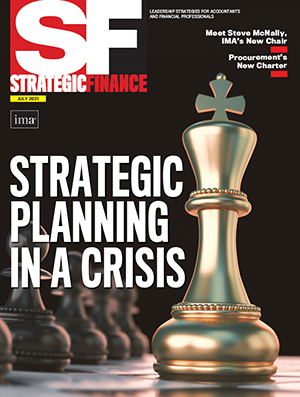The speaker, Axel Foery, executive vice president for the quantum-safe security division of the Swiss-based security company ID Quantique, characterized the quantum computer movement as “a paradigm shift in human history.”
In his talk, Foery outlined four great techno-cultural movements: the Industrial Revolution (1780-1840), Technical Revolution (1870-1920), Digital Revolution (1975-2020), and the Quantum Revolution (2020-…). His own company exemplifies a typical line of development taken by quantum, from academic-based research (the Group of Applied Physics at the University of Geneva) to a commercial provider of security products. Founded in 2001 by four quantum physicists from the university, ID Quantique today sells quantum-safe network encryption solutions and photon counters for optical instruments.

A QUANTUM VISICALC?
In his assessment of the acceleration of quantum research and development, Lawrence Gasman of IQT Research talked about the hardware, software, and access issues, and he commented on how 70 years of classical computer tech is being loaded onto and merging with quantum computing. He asked an interesting question relating to the growth curve. “Will there be a quantum killer app that will ignite the way VisiCalc, the first spreadsheet program, exploded the interest in Apple II computers in 1979?”
If that were to happen, the hope is that it will involve something like the new algorithm recently announced by Cambridge Quantum Computing “that accelerates quantum Monte Carlo integration” for financial risk analysis and supply-chain logistics, rather than an app that cracks current public-key cryptography. That kind of development would be a veritable hacker philosopher’s stone, which could convert mere numbers to gold. IQT, incidentally, expects “Quantum Monte Carlo (QMC) methods to be the first family of quantum algorithms to bring significant revenue generation/cost savings for the financial sector.”
CASH FOR QUBITS
One measure of progress for quantum tech discussed at the convention is the global ecosystem evolving around quantum technologies that attracted an estimated $21 billion in government investments worldwide in 2020.
In 2018, the U.S. government created the National Quantum Initiative. The National Institute of Standards and Technology, the National Science Foundation, and the U.S. Department of Energy are all developing quantum computing projects as part of the initiative. A total of $1.2 billion is slated for the promotion of quantum computing for the five years beginning in 2019.
Along with its other projects, China is building a National Laboratory for Quantum Information Sciences with initial funding of $1 billion. Canada has quantum investments of more than $1 billion, the United Kingdom £1 billion, Germany €2.65 billion, France has a five-year plan valued at €1.8 billion, and the Netherlands €615 million. India has quantum investments including a National Mission on Quantum Technologies and Applications that amount to $1 billion; Japan ¥30 billion; Korea announced $40 million in 2019; and Australia, Russia, Singapore, and Israel are also making substantial commitments.
Gasman commented on the international interest, suggesting people shouldn’t be surprised if innovation arrives from outside the United States.
REDICTIONS
At the end of last year, TechRepublic asked experts what they thought 2021 would bring to quantum computing. One shared view was that 2021 would “see more companies look for specific use cases that can be leveraged sometime in the next decade, as quantum computers improve and the number of qubits available continues to grow.”
Tony Uttley, who is president of Honeywell Quantum Solutions, focused on more proximate goals. He said, “Next year is going to be when we start seeing what algorithms are going to show the most promise in this near term era.” Honeywell’s first commercially offered computer is already being used by Merck, DHL, BP, and Accenture.
Bob Sutor, vice president of IBM Quantum Strategy and Ecosystem talked about the promise of more than 20,000 individuals who will be completing online quantum computing technology and coding courses. “Companies will begin to tap into this pool of quantum-savvy potential employees…and more people will use actual quantum hardware.”
Research vice president Chirag Dekate from Gartner explained, “As enterprises ramp up their quantum investments and, most importantly, refactoring application codebases around quantum, they will discover new ways of improving their current classical systems. Over the next year, we anticipate that organizations engaging in these initiatives will roughly double.”
All three of the experts quoted seem to echo Axel Foery’s call for involvement now: “It’s time to act!”

July 2021



